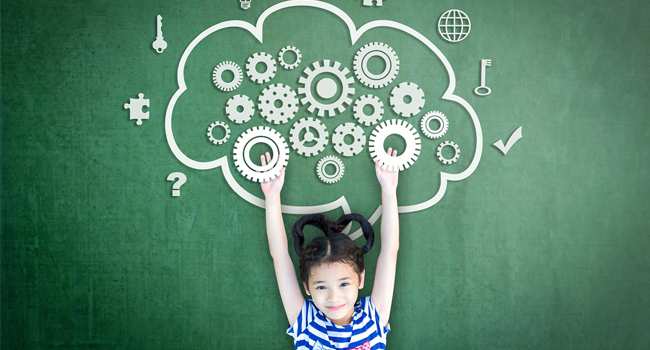Pro Tips on How To Improve Your Child’s Self-Awareness

It’s always amazed me how our childhood shapes our awareness and emotions. In my case, I was a sick little kid having to visit hospitals almost every year. I guess that’s why my parents never had to struggle to get me to a doctors appointment. To be honest, hospitals never seemed to bother me the way they bother most kids. As a plus side, waiting at hospitals isn’t as bad for me as an adult either.
Just like hospitals, I got used to speaking with doctors too. The tedious questions they ask became part of my life. So it’s not surprising now that I can articulate how my body is feeling to my doctors better than most. I can do this because I am aware of my body’s functions. I can tell if something goes wrong and when something feels right.
As a teenager, I was under the impression that everyone was capable of saying what they feel, just as well as I did. Boy was I wrong!! Fast forward to university and my thoughts had changed. My classmates told me that many of them struggle with vocalising their internal sensations. Some struggled to express their complaints to health care providers. Others had never considered themselves as independent individuals before university.
When I understood what this in-ability to express and value themselves meant, I started noticing it even among practical strangers. There was no way to unsee it. What my unfortunate friends lacked and I didn’t was self-awareness.
What is Self-awareness?
By now I think you need to know what self-awareness is. The word self-awareness can confuse especially when it’s used interchangeably with self-consciousness. They are not the same thing.
If you think about it, self-awareness is being aware of yourself. To clearly understand you need to know what being aware and self means.
Awareness and Self
Awareness is a distinct feature that separates the living from the non-living. A table isn’t aware of the room it’s in. You are. Similarly, a car doesn’t know it’s moving fast, people or animals in it do. Awareness is a very life-based trait. Even bacteria are aware of their surroundings, knowing exactly where to go for food and what to stay away from.
Creatures higher up the ladder develop awareness about more complex information. You and I are aware not just about our surroundings but also about time, ourselves and our actions.
Moving on, self in psychology means the idea of separating your own body and mind from the environment. A neat summary would be “The concept of one’s own identity that is unique in terms of thoughts, abilities, and experiences.”
The idea of the self is as old as the human species. Which is probably why “Know thyself” is the oldest self-help advice you’ll find.
Self-Awareness
The Merriam-Webster dictionary defines self-awareness as “an awareness of one’s own identity or individuality” The earliest theory on self-awareness was given by Shelley Duval and Robert Wicklund.
Alongside establishing the idea of self-awareness, they strongly claimed that it was directly related to self-control. Psychologist Daniel Goleman defined it as “knowing one’s internal states, preferences, resources, and intuitions.”
Two Types of Self-Awareness
The first is widely known as internal self-awareness. It relates your clarity in seeing your values, passions, aspirations and reactions with the world around you. Internal self-awareness results in a higher job and relationship satisfaction, not to mention control over personal and social matters.
Second, comes, external self-awareness. Simply put, it’s what you call being conscious of what others think of you. Good level of external self-awareness means you’ll empathize better. It’ll also make you more approachable, meaning you’ll connect with people more easily.
It’s easy to think having one sort of self-awareness means having the other but sadly, according to Dr Tasha Eurich that isn’t true. You can have good internal self-awareness and still suck at showing empathy. Or, it could be the other way around. Rather than being one truth, self-awareness is a delicate balance of two distinct ways to look at yourself.
Why is self-awareness so important?
Trying to write up the importance of self-awareness in a paragraph is easier said than done. However, I tried to summarise the ideas as well as I could. Feel free to read up more on this.
Self-awareness goes hand in hand with Emotional intelligence. Monitoring your emotions and thoughts in real-time improves your understanding of yourself, Consequently, you become more compassionate.
Also, it makes you conscious of your actions and their effects. Self-awareness will give you a greater depth of life experience as well.
Many types of research have related self-awareness with success in business leadership.
The study by Green Peak Partners and Cornell University found that a high self-awareness score was the strongest predictor of the overall success of the company.
Self-awareness is crucial for professions like Psychotherapy. As a therapist, you need to be aware of your own biases, values and stereotypical assumptions before getting in a session with a patient.
Professions aside, self-awareness is important to be a functional human being. It’s just as important for adults as for children. Developing child self-awareness is the best way to solve all their adult issues before they even begin. Here is why:
- Helps children recognize their abilities
- Develops intelligence so they learn to solve problems on their own
- Self assess and correct mistakes
- Be better at talking about emotions
- Relate with others needs and views
- Consider the impact of their actions
- Develop resilience
How Children Develop Self-Awareness: Stages of developing Self-Awareness
Self-awareness develops over time. You need to remember that an infant comes into this world with absolutely no clue about anything. So a lot of baby-steps (pun intended) are involved in becoming self-aware.
Throughout the first year, children realize that their body is separate from their mother. This also includes the understanding that they can act independently and change space and matter. By the end of the first year, they become aware of their movement. It’s a huge step, but they still can’t recognize themselves. Meaning they don’t have an image of themselves as you and I do.
By 18–24 months, toddlers start recognizing themselves in the mirror. It is believed that facial recognition plays a pivotal role in developing self-awareness. The age limit of this stage varies widely among different socioeconomic levels, cultures and parenting practices.

By 18 months, the infant can also communicate their name, and can even recognize themselves in pictures. Toddlers start relating their actions to the actions of other people after 24 months. They usually acquire gender and age categories by this time as well,
Around school age (4-6yrs) the awareness of personal memory transitions into a sense of themselves. At this stage, interests start to develop. During preschool, specific details about certain things start to develop and take hold.
Stages of Self-Awareness
The mirror reflection test provides the basis for distinguishing self-awareness levels. A total of six levels have been accepted.
Level 0: Confusion
Zero degrees self-awareness means not having any idea about what a mirror or reflection is. They perceive the mirror to be a part of their environment.
Level 1: Differentiation
At level 1 the mirror becomes a separate entity. It also means the person is capable of understanding that the reflection in the mirror is their own.
Level 2: Situation
Level 2 means now the person can analyze themselves from the reflection, especially their movements.
Level 3: Identification
Developing level 3 awareness means the person now refers to themselves while looking at the mirror. They may also recognise themselves in images.
Level 4: Permanence
Once at this level, one can recall his appearance without the aid of mirrors. This means the person can feel changes in his/her body and visualize them without help.
Level 5: Self-consciousness
Also known as meta self-awareness, this level means one can now imagine themselves in the third person. Public standpoint or perception develops in this stage.
How To Teach Self-Awareness for Child Development
As an adult, self-awareness is necessary, but in reality, you need it throughout your life. Being self-aware means you know exactly what you feel or why you want something. You may not be in control of all your urges. However, you will be able to monitor your lack of control so you can work to fix it.
If you are a self-aware individual it is only normal that you would want to raise your child to become more like yourself. Sadly though, most of us don’t know how we became self-aware. So, when it comes to teaching self-awareness we find ourselves at a loss.
To quench your thirst I tried to compile a list of pro tips on child self-awareness development. You may already be practising some of these in which case you’re doing a great job of being a parent. Without further adieu here are the tips,
1. Encourage using their strengths
Keep a lookout for a child’s strengths. Could be absolutely anything from a sharp right-hook to colour sensitivity. As a parent, you need to understand what your child is good at. After knowing it yourself, tell your child about their strength and guide them on using it. The idea of being a unique individual having unique abilities does wonders in developing self-awareness.
2. Enforce confidence with skills
Confidence may not be the key to self-awareness, but it surely helps to have it when using self-awareness. Nothing enforces confidence as much as accomplishment. For your toddler or preschooler, this accomplishment could be as simple as completing the jungle gym in one go or learning to use safety scissors. When children learn practical skills their brains create positive memories based on their abilities. In other words, a positive self-image develops making them self aware.
3. Try new things together
Got a new IKEA shelf? Bought a new word puzzle? Get your toddler involved. Children love new experiences. Try sharing your own new experiences with them. This creates a positive bond with you as a parent as well as leaving a positive impression towards new experiences.
4. Talk about emotions
This can’t be stretched enough. Talk to your kid like you’re talking with a person. Treat their emotions as valid responses. Encourage them to express themselves to you as much as possible. Turn off your judgment for a while and be the loving parent when they share their vulnerabilities with you.
Children who reach adulthood with no emotional outlets tend to have more psychological breakdowns than ones who do. Conversely, children with proper emotional guidance show high levels of self-awareness.
5. Discuss Ambitions and Goals
Talk to your children about their aspirations and goals. Try not to be authoritative, but rather show genuine curiosity. When you show curiosity, children feel the importance without feeling bossed around. Have a healthy discussion about the future. Point out any blind spots as a caring mentor, but don’t try to control their thoughts.
If your child can talk it through with you they’ll feel more involved in making their life choices, resulting in a big leap of self-awareness.
6. Develop and monitor goals
As a parent, you’re meant to know your child’s strengths, weaknesses, passions and disinterests. This puts you in a good position to help them set their life goals. Children rarely choose what’s right for them but sometimes gut feelings prevail over logic. Keep track of their goals, help set them as well as you can. Whatever you do, try not to impose goals without consulting them.
You setting their goals for them will only detach them from their internal desires and lose self-awareness.
7. Attitudes and Purposes
“Our purposes don’t define us, our attitudes do” is one of the key lessons to give your child. Especially before they join the school. It’s unlikely a kid will understand the message as is, so help them understand. Might be easier to explain with examples.
A kid who understands that his purpose of doing anything will not matter unless his/her attitude towards others, him/herself is in line with the actions.
8. Appreciate them
A little appreciation goes a long way. However, there needs to be a balance. Appreciating wrong features is just as bad as not appreciating enough, maybe even worse. Try not to encourage negative attitudes and judgments. Promote inclusive practices and thoughts. Think of appreciation as watering a plant, too little and the plant dries out, too much and the roots dissolve. The amount has to be just right.
Children who get proper appreciation from their parent figures grow up to become self-confident individuals with the mindset of taking on challenges head-on. On the other hand, constant criticism enforces self-doubt, incompetence and nervous overload.
9. Teach to Self-reflect
Self-reflection is the process of asking yourself fundamental questions about yourself. Teach your child to think about questions like
Why does one do what they do? What are the values and institutions they believe? Why do they believe them? Have they considered alternatives?
Asking these questions and searching for answers is what self-reflection defines. Finding these answers and practicing these thought patterns is essential for developing self-awareness to the fullest.
10. Be patient and forgiving
There is no way to raise a child without patience and forgiveness. Children make mistakes out of ignorance and overconfidence. It is important to find out the reasons for their misdeed before passing judgement.
You need to remember not everyone develops at the same rate and some children learn slower than others. Forgiveness enforces positive morals while patience translates into importance and urgency. These careful measures will help your child grow into a complete person instead of a bag of unmanaged emotions and complicated issues.
11. Respect them
The relationship between you and your child must stem from mutual respect. Being respected at home means children develop better impressions of themselves. You respecting your child translates into your child having more self-respect.
Self-respect is a huge part of self-awareness, and people lacking self-respect struggle to manage their expectations and relationships.
Conclusion
Self-awareness is one of the core human capabilities that let us feel and sort emotions, information, relations and beliefs. Being truly self-aware is not much of a feature but rather a conscious practice. Most people never know how self-aware they are or what they lack in terms of being aware. Yet, in certain settings, it becomes obvious that individuals with self-awareness perform tasks better and more efficiently. You can’t have adults be self-aware unless you cultivate self-awareness in them as a child. In this age of self-aware machines, the loss of human self-awareness is something we can’t afford. After all, that is what sets us apart from the non-living.




